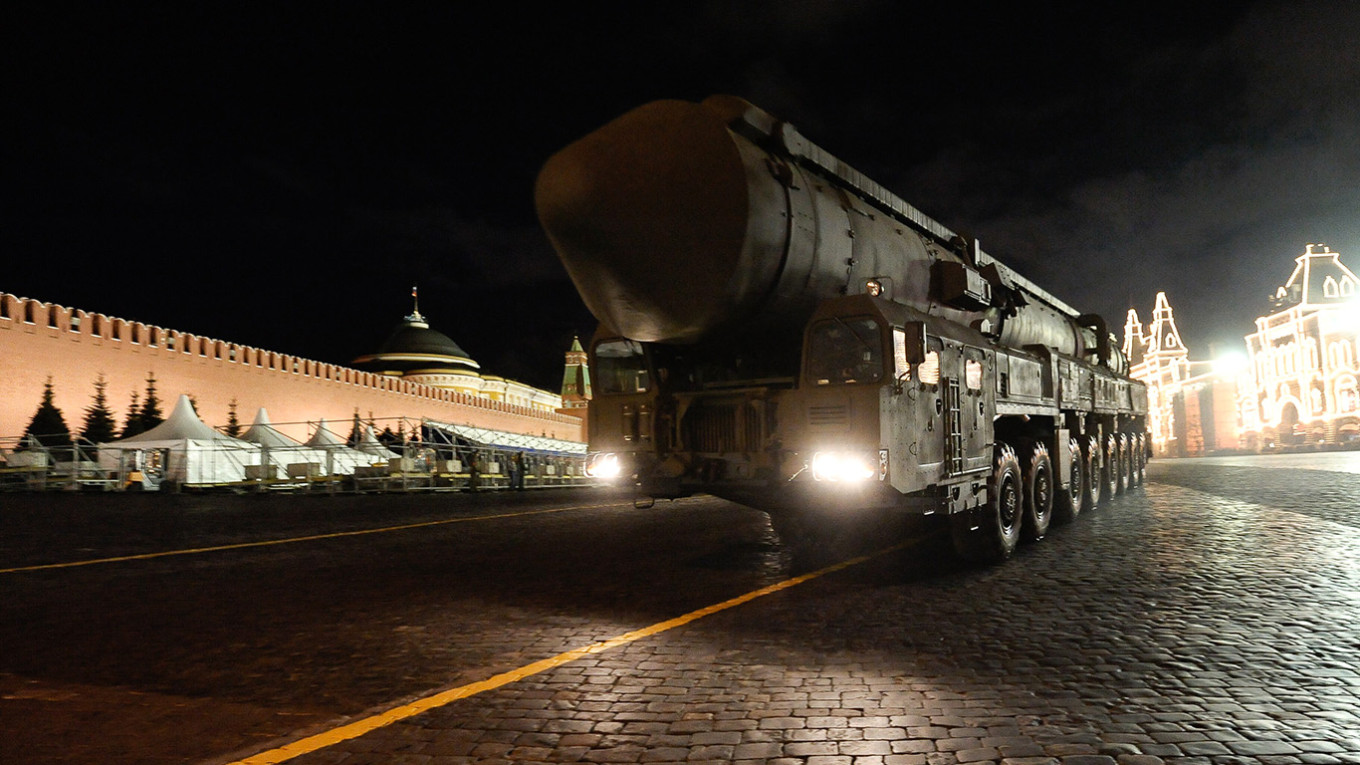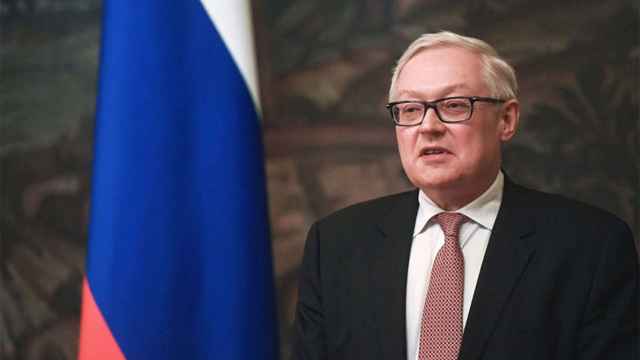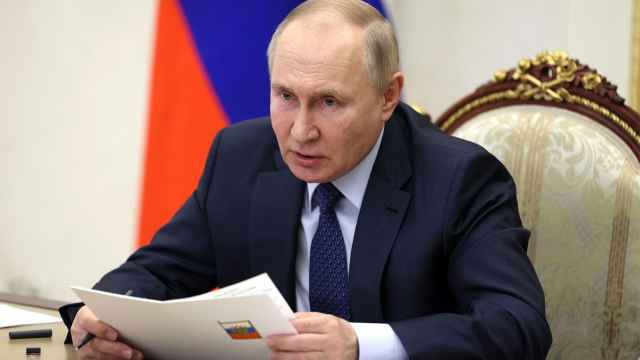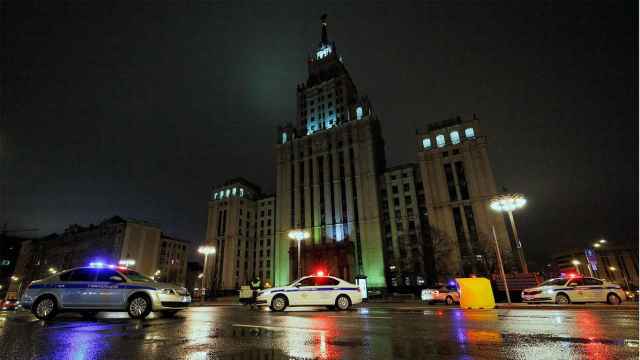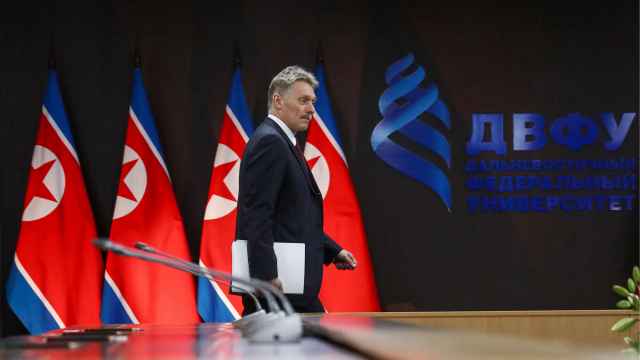President Vladimir Putin devoted a notable part of his public speeches in Kazakhstan to praising Russia's new weapons that are “almost like nuclear weapons.” But is he getting the results he wants, or scaring his own people in the process?
Now that the panic has dispersed, we can finally draw more unemotional conclusions. After all, this strike was primarily aimed at causing fear among Western capitals that have continued to support Ukraine despite the Kremlin’s nuclear threats.
Russian propaganda presented the unveiling of Oreshnik as a turning point in the confrontation with the West. Putin apparently considers the launch to be extremely successful, and state media has a lot of experience capturing his mood. The president had to catch everyone’s attention with his emergency address and again warned NATO about the seriousness of his intentions.
In addition, he climbed one or even two more rungs on the ladder of nuclear escalation by striking Ukraine with a nuclear-capable weapon. Thus, he has only a few options left: a nuclear test somewhere deep in Russia’s hinterland to make the West believe that his intentions are serious.
As always, there were several audiences for this propaganda. The primary target was the elites and societies of European countries and the collective West. Ukrainian society was also a target group, but it was rather an action designed for a cumulative effect - together with daily attacks of drones and missiles against Ukrainian cities - than for an instantaneous effect. After all, the formal justification for the Oreshnik strike was Ukraine’s use of Western precision long-range weapons to strike military targets on Russian territory
The third important target was Russia’s own population, which needed to be shown that Russia was strong (despite its inability to protect its own Bryansk and Kursk regions with air defense) with a dramatic asymmetric response.
Nuclear blackmail and bravado on Russian talk shows and officials’ telegram channels in moderate doses play a positive role for the regime and Putin personally, as the abstract threat leads to a concrete pride in Russia's military capabilities and a sense of co-membership in this power.
The most important archetype of Russian political and national consciousness is the cult of power – that Russia is a world power, or at least deserving of that status This informs the Kremlin’s bellicose statements. But becoming an actual world power through increasing the likelihood of a dangerous nuclear war is quite another matter.
Back in March 2023, the Institute of Conflictology and Analysis of Russia asked people if they would t support a nuclear strike against Ukraine and NATO countries.
The absolute majority (88%) of Russians that responded would not support the use of nuclear weapons against Ukraine. Just 10% of Russians aged 18 and older would be in favor of such a step. It is important to note that the older generation (55+ years old) is even more likely to oppose a nuclear strike than the young. Although representatives of this age group are usually more radical in matters of the Russian-Ukrainian war - compared to young people, for example, when it comes to forced mobilization and the conditions for cessation of hostilities.
Despite all the anti-Western and especially anti-NATO rhetoric, the majority of Russian citizens (65%) would not support nuclear strikes against these countries. Only a quarter would.
Russian society's perception of nuclear escalation is likely to be similar to that of forced mobilization. Namely, unpopular. The constant increase in enlistment payments – 15 times since 2022 – as well as the active use of prisoners and now North Korean troops clearly demonstrates that the war against Ukraine has not become a popular war for Russians. If it were, such material rewards would be unnecessary – patriotism would be enough for people to volunteer.
Threats with nuclear weapons are all well and good as long as they do not lead to escalation, which necessarily implies a response to their use. That response would affect every Russian, regardless of their attitude to or involvement in the war so far.
After all, nuclear warheads will not discriminate between who is to be spared and who is not. Everyone from from CEOs to street sweepers will become participants in such a war. Moreover, there are no material benefits that would make a nuclear strike worth it.
The majority of people are passive to the war and focused on their own survival, trying not to think about morality, political position, and civic activism. A possible nuclear conflict, on the contrary, affects them personally and frightens them
The prospect of nuclear war could affect not only this majority, but also the segment of society who consider the outbreak of war a mistake yet prefer to support it instead of bearing collective responsibility and a loss of national prestige. Together with the passive part of society and ideological opponents of the war from the opposition camp, they constitute the absolute majority.
Not to mention that the most ardent supporters of the war, for the most part, cannot necessarily be considered supportive of nuclear exchanges either. Thus, Putin has brought escalation to a ceiling set not even by the collective West, but by his own population.
A Message from The Moscow Times:
Dear readers,
We are facing unprecedented challenges. Russia's Prosecutor General's Office has designated The Moscow Times as an "undesirable" organization, criminalizing our work and putting our staff at risk of prosecution. This follows our earlier unjust labeling as a "foreign agent."
These actions are direct attempts to silence independent journalism in Russia. The authorities claim our work "discredits the decisions of the Russian leadership." We see things differently: we strive to provide accurate, unbiased reporting on Russia.
We, the journalists of The Moscow Times, refuse to be silenced. But to continue our work, we need your help.
Your support, no matter how small, makes a world of difference. If you can, please support us monthly starting from just $2. It's quick to set up, and every contribution makes a significant impact.
By supporting The Moscow Times, you're defending open, independent journalism in the face of repression. Thank you for standing with us.
Remind me later.



